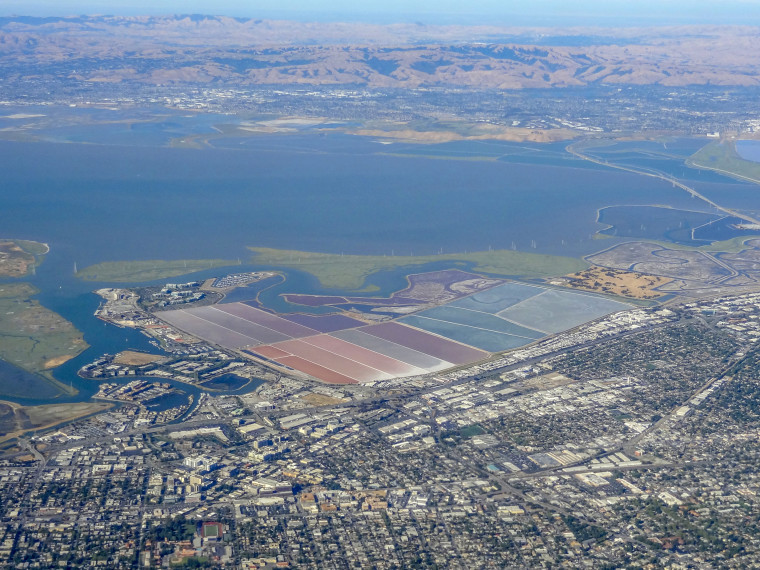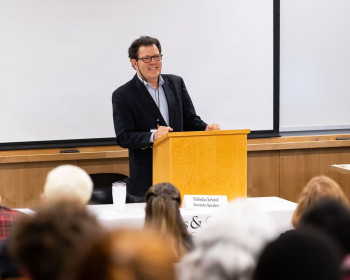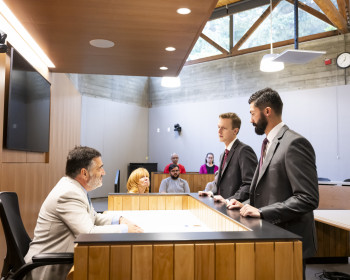Earthrise Protects Salt Ponds in the Bay Area
Open gallery

Earthrise Law Center at Lewis & Clark Law School, on behalf of their client San Francisco Baykeeper, recently won an important case in the U.S. District Court for the Northern District of California to protect salt ponds in Redwood City, California.
On October 5, 2020, Judge William Alsup reversed EPA’s determination that 1,300 acres of Cargill, Inc’s salt pond were not protected by the Clean Water Act and granted Earthrise’s motion for summary judgment. Earthrise achieved this win in partnership with lawyers at Cotchett, Pitre & McCarthy LLP and the California Attorney General’s Office.
The Court vacated the Trump Administration’s “negative jurisdictional determination” issued in 2019, which had allowed Cargill to permanently fill the salt ponds to build condos and other commercial buildings. The ponds have been used by Cargill for decades for industrial salt production, but they were created by impounding natural marshes and other tributaries of San Francisco Bay.
“Baykeeper and other advocates have been fighting for the restoration of the Bay’s historic marshlands as important wildlife habitat and a crucial barrier against rising sea levels caused by climate change,” stated Clinic Co-Director and lead attorney Allison LaPlante.
EPA’s final decision—which the Court found to be contrary to law—virtually ignored the rigorous analysis and scientific conclusions of the EPA’s regional office in San Francisco, which in 2016 issued a draft jurisdictional determination finding the Cargill salt ponds were indeed “waters of the United States” protected by the Clean Water Act.
“The South Bay’s salt ponds are in fact wet and very much connected to the Bay – not dry land as bizarrely claimed by the administration,” said Sejal Choksi-Chugh, the Executive Director at San Francisco Baykeeper. “This ruling is a big legal win for common sense and for San Francisco Bay. Cargill’s irresponsible development proposals will now and in the future have to comply with the Clean Water Act and protect the Bay and local residents.”
Earthrise clinic students got the opportunity to help at all stages of the case. “I was involved with this case from the start, when I began as a summer law clerk for Earthrise,” Audrey Leonard ’20 stated. “It was a fantastic opportunity to learn everything that goes into developing a theory for the case and witness each step play out along the way. The Earthrise team made sure I played a role in everything from understanding the nuances of working on a case with so many lawyers involved, to drafting court filings.”
“I got to jump into the Salt Ponds case during the summary judgment briefing stage and help with legal research, draft portions of briefs, and review FOIA documents,” former clinic student Hannah Clements ’20 said. “This was such an interesting case to be a part of given the drastic changes from the Obama administration to the Trump administration, and the profound impacts the case would have on an important aquatic ecosystem.”
“I interviewed three members of San Francisco Baykeeper and assisted them in writing their standing declarations in case of a standing challenge in court,” Kelsey Furman ’21 stated. “I particularly enjoyed this part of my Earthrise experience because I interacted with people directly affected by the environmental issue. I felt a unique investment in this case because the declarants shared stories and personal insights that helped me feel connected to this place from which I was physically far removed.”
Earthrise attorneys Allison LaPlante and Jamie Saul were the lead lawyers on this case. Clinic students Audrey Leonard ’20, Kelsey Furman ’21, Hannah Clements ’20, and Harrison Beck ’21 also assisted on the case. “It feels special to have contributed so directly to an environmental win like this,” Beck said. “The opportunity Earthrise offers to learn and grow as a newbie legal advocate while helping to affect real-world environmental change is truly something worth writing home about.”
“I am so grateful to Earthrise for plugging its clinic students into major cases, trusting us with significant responsibilities, and––most importantly––providing incredible mentorship along the way,” Clements said.
Law Communications is located in room 304 of Legal Research Center (LRC) on the law Campus.
MSC: 51
email jasbury@lclark.edu
voice 503-768-6605
Cell: 626-676-7923
Assistant Dean,
Communications and External Relations, Law School
Judy Asbury
Law Communications
Lewis & Clark Law School
10101 S. Terwilliger Boulevard MSC 51
Portland OR 97219

